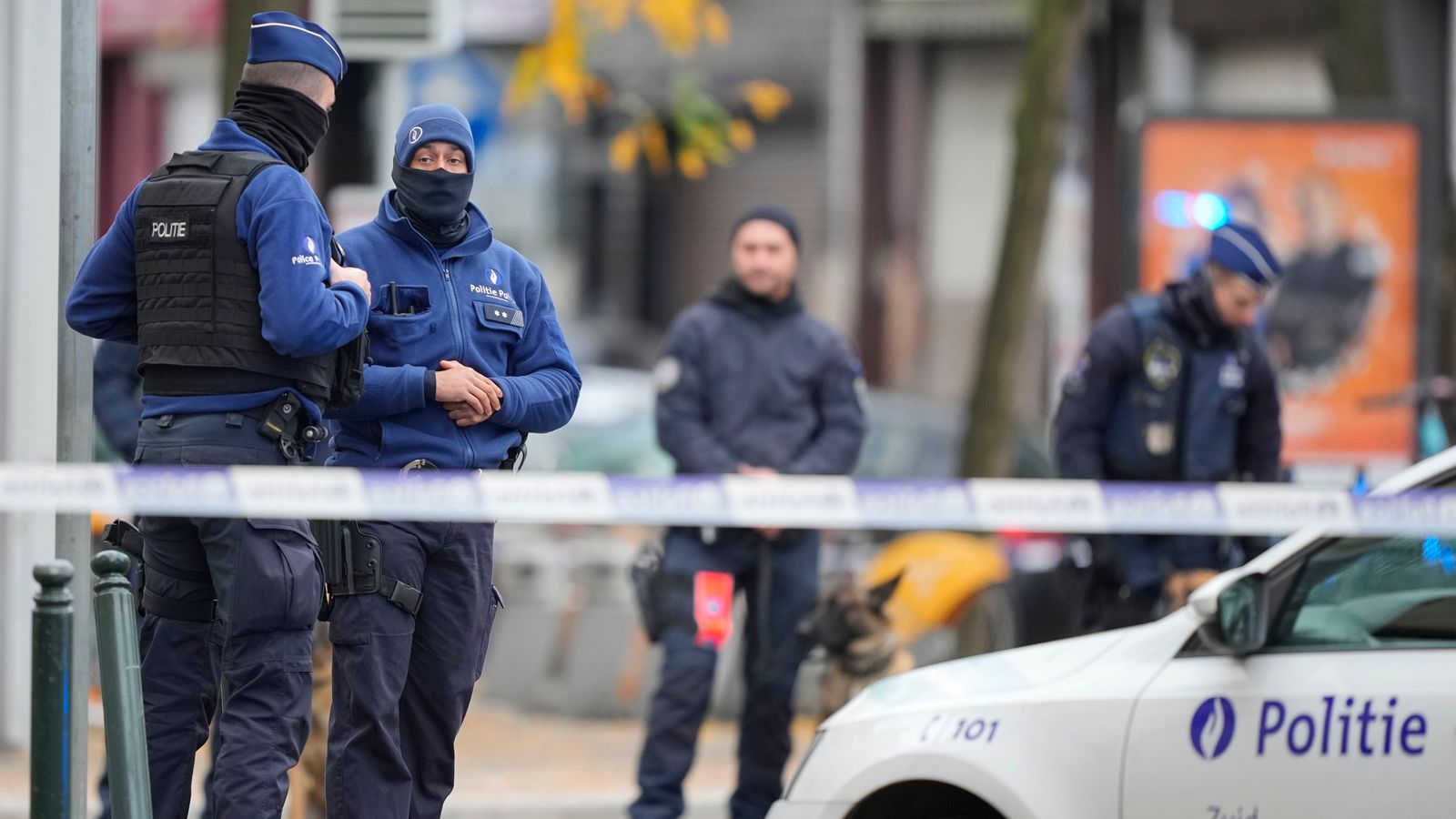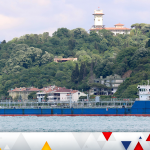The paralysing fear that had gripped Brussels was lifted in the morning, but only after one more death.
Thirteen hours after a man, now identified as Abdesalem L, had killed two Swedish people and then gone on the run, he was captured in a cafe.
Far from being a skilled fugitive, he was still wearing the same distinctive orange jacket that he’d worn while carrying out his original attack. And he was only a short walk from his own home.
Abdesalem had been travelling on a bus when he was spotted by fellow passengers and the driver, who alerted the police.
He jumped off the bus, tried to flee but was cornered in the cafe. The police shot him and despite efforts to keep him alive, he died in hospital.
So now the threat of another imminent attack has subsided but the ripples of shock are significant.
‘He could have shot me’
Brussels shooting: What we know about suspected gunman Abdesalem L, killed by police
Brussels shooting: Suspected gunman shot dead by police after two people killed before football match
Brussels ‘on highest terror alert’ and football fans told to stay in stadium after two shot dead
We see Issiga, a teenager, walking along the street, looking distracted, and strike up a conversation. It turns out he was there at the critical moment: “I was on the bus and Abdesalem was at the front. The bus driver saw him and called for support.
“He had a weapon in his bag. I was scared. He could have shot me.”
Please use Chrome browser for a more accessible video player
So many lives have been affected over the past day, one way or another, by this attack. The victims, of course, and those traumatised by what they saw. But also the fabric of society here, bruised and shocked.
The children who were kept away from school today; football supporters who waited nervously at the national stadium last night, unable to go home after the game between Belgium and Sweden had been abandoned. And the security services, who will have to confront the question of whether they could have seen this coming.
Abdesalem L, who was born in Tunisia, had applied for asylum in Belgium in 2019, but been turned down a year later.
He managed to stay in Brussels, though, eluding the authorities and living in Schaerbeek – a busy area that already had a troubled relationship with terrorism.
Read more:
Six guilty of murder over 2016 Brussels airport and train attack that killed 32 people
Why Poland’s unwavering support of Ukraine has reached breaking point
‘He is quite simply a terrorist’
Dr Mustafa Assaf has lived in Schaerbeek for more than a quarter of a century. He’s seen it change, experiencing the effects of radicalisation.
As we stand talking in the street, he points around him – on this side, the homes of two of those involved in the Brussels airport terror attack; over there, the family of a man who went to Syria to join Islamic State.
He says he’s tried to warn young people away from that path, but has been met with anger and intimidation. But the overwhelming majority, he insists, are horrified by terrorist attacks.
Be the first to get Breaking News
Install the Sky News app for free
“The community here is against these barbaric acts,” he tells me. “I know that some people hear the word ‘Islam’ and automatically connect it to terrorism. But look at me, look around – we respect life. Not like the man who did these attacks.
“For me people like this – he is not a Muslim. He is quite simply a terrorist.”
Brussels will slowly get back to normal – the shattered windows will be replaced, the blood cleared up. But of course the memories will linger, just as they do in Arras, the northern French town where a teacher was killed last week by a different terrorist.
Are there any links between these attacks and the events in the Middle East? So far, it seems not. Or, at least, nothing has been established.
Can they really, though, be a coincidence? And if not, what might happen next? Those are the questions that still rattle around in Brussels and beyond.






















